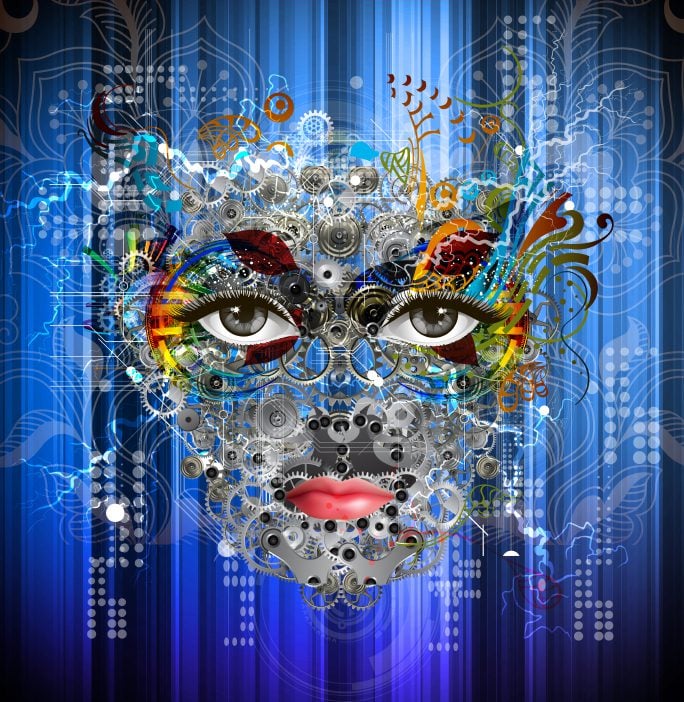 What is a person? This is no easy term to define. I talk and write quite a lot about personhood and personal relationships and the need to guard against treating persons as things or commodities. But what is a person? One of my professors in Trinitarian theology once remarked that one cannot define “person(s)” when talking about life within the divine Trinity; the term “person” in such contexts is undefinable. Karl Barth preferred to write of “modes of being” (Seinsweise; not to be confused with the heresy known as modalism), when reflecting upon particularity within the Trinity. Barth was wary of the term “person(s),” since the term’s use can easily fall prey to individualistic associations (contemporary readers will easily associate person with personality).
What is a person? This is no easy term to define. I talk and write quite a lot about personhood and personal relationships and the need to guard against treating persons as things or commodities. But what is a person? One of my professors in Trinitarian theology once remarked that one cannot define “person(s)” when talking about life within the divine Trinity; the term “person” in such contexts is undefinable. Karl Barth preferred to write of “modes of being” (Seinsweise; not to be confused with the heresy known as modalism), when reflecting upon particularity within the Trinity. Barth was wary of the term “person(s),” since the term’s use can easily fall prey to individualistic associations (contemporary readers will easily associate person with personality).
The problem with defining “person” is not isolated to references to God. We find similar difficulties when approaching life in general. Is a fetus a person? Not since Roe vs. Wade supposedly. What about a slave? Is a slave a person? People went to great lengths in the American context to use one’s skin color as a determining mark of one’s quality of life. Dark skin was viewed as inferior and a sign that one was less than fully personal; thus conveniently for those in power and with lighter skin, someone with dark skin could be “justifiably” enslaved, treated as property. Unfortunately, there are cases today when people (even of the same ethnic heritage) view an individual’s skin color as a sign of their relative merit or value. It’s not just skin color that people use to determine value. Some or many of us associate personal value with economic rank, employment rank, and brain power. So, guess what that entails for those of us with less capacities in these spheres? And yet, what if those with more lose such capacities through stock plunges, unemployment, and injuries involving brain damage? What happens to their “personal” worth?
America’s Declaration of Independence claims, “We hold these truths to be self-evident, that all men are created equal, that they are endowed by their Creator with certain unalienable Rights, that among these are Life, Liberty and the pursuit of Happiness.” Did “men” mean people? White people? White men? White men with more power? Just think how long it took to get the Black vote and the woman’s vote. And just think how much money (not just votes) it often takes for a person to win a major election in this land. If all people—not just men—are created equal, why then do some people appear to be more equal than others? Does our society, our government really function based on equality for all human persons? And beyond society at large and the government, how about you and me? Do we treat people—whoever they are, even those close to us—as persons or as things? Do we value a car, a home, a pair of Air Jordan shoes, or a business as worth more than those in them, as if the things have more personal value to us? (The only qualifying factor for those thinking of value solely or primarily in monetary terms might be instances where they or their corporate identities have taken out notable insurance policies on people like employees). In all these things, we have to get at what is meant by “personal” and “people.”
None of us like it when others reduce our persons to things, however we define person. Why is that? And why don’t we often have as much trouble with treating things as persons, or do we?
If we don’t know ultimately how to define “person,” what do we make of stories where people treat things as persons? Take the movie “Her” for example. What is the fundamental difference concerning “person” between Theodore Twombley (played by Joaquin Phoenix) and Samantha, the voice (played by Scarlett Johansson) of his new sophisticated operating system? Theodore falls in love with Samantha (“Her”). Can a person fall in love with a machine or its voice? Does one become impersonal if and when that happens? Does intimacy or affection with an object of any kind make it personal? Can a thing become a person? And can a person become a thing?
One of the key reasons for my embrace of Christian orthodoxy is its emphasis on interpersonal communion with God who is personal, loving and holy, and with people who image God in holy love for one another. But can we ever turn relationships into impersonal idols? Indeed, we can. So, while I do not share the Buddhist conviction that we need to move beyond personhood, which is associated with grasping, I do agree with Buddhists that grasping or clutching is problematic; in my estimation, it turns persons into things. But there we go again—what is a person?













